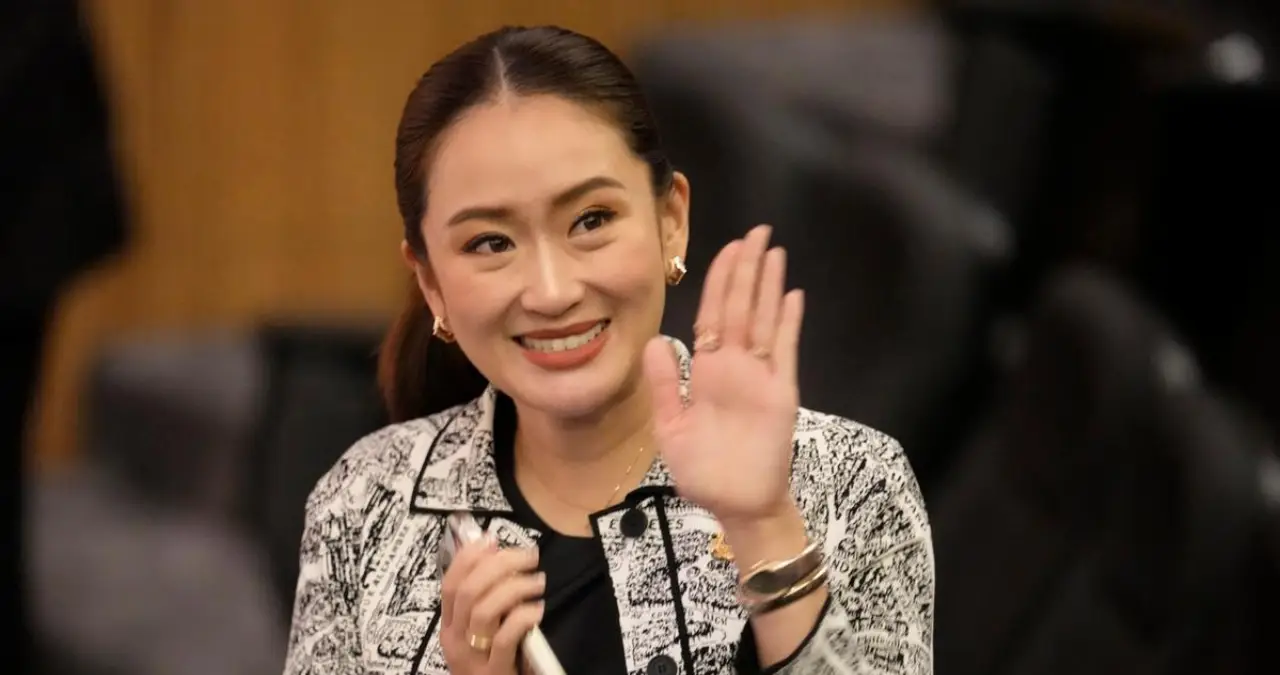Thailand’s political landscape is on edge as the Constitutional Court prepares to deliver a potentially seismic ruling on Tuesday regarding Prime Minister Paetongtarn Shinawatra. The court must decide whether to accept or reject a petition challenging her premiership, a case that has gripped the nation amid allegations tied to a leaked audio clip purportedly featuring a conversation between Paetongtarn and Cambodian Senate President Hun Sen. The outcome could reshape the country’s leadership and test the judiciary’s role in navigating Thailand’s often turbulent political waters.
Court at a Crossroads: Four Possible Outcomes
The petition, initiated by the Thai Senate, calls for the court to determine whether Paetongtarn’s position as prime minister should be terminated over the controversial recording. Legal experts have outlined four potential scenarios for the court’s decision. First, the court could accept the petition and order Paetongtarn to suspend her duties pending a full investigation. Second, it might accept the petition but allow her to remain in office during the process. Third, the court could outright reject the petition, effectively clearing her of immediate risk. Finally, the judges might postpone their decision, requesting additional documentation or evidence before proceeding.
All nine Constitutional Court judges are expected to participate in this critical session, a requirement for any ruling to be considered valid. The presence of a full quorum underscores the gravity of the case, as even a single absence could delay the process. While initial deliberations may begin as early as July 1, legal analysts caution that a final decision on that date remains uncertain. “The panel must thoroughly review all documents before moving forward” said Nakarin, a legal commentator familiar with the court’s procedures. “The outcome hinges on both document verification and the availability of all judges” he added.
The Audio Clip: A Political Flashpoint
At the heart of the controversy is the leaked audio clip, which allegedly captures a conversation between Paetongtarn and Hun Sen, a prominent figure in Cambodian politics. While the exact contents of the recording have not been publicly confirmed, its emergence has fueled intense speculation about potential diplomatic or political improprieties. Critics argue that the clip, if authentic, could raise questions about foreign influence in Thai governance, a sensitive issue given the historical tensions between Thailand and Cambodia over border disputes and political rhetoric.
However, no verified evidence has yet substantiated the claims surrounding the recording’s content or context. Paetongtarn’s supporters have dismissed the petition as a politically motivated attack, accusing opponents of exploiting unverified material to undermine her leadership. Her administration has refrained from detailed commentary on the clip itself, focusing instead on calls for a fair and transparent judicial process. As the court weighs its decision, the lack of clarity around the audio’s authenticity remains a significant hurdle, with legal experts warning that any ruling based on unconfirmed evidence could set a troubling precedent.
Paetongtarn’s Premiership Under Scrutiny
Paetongtarn Shinawatra, the youngest daughter of former Prime Minister Thaksin Shinawatra, assumed office amid both high expectations and deep skepticism. Her family’s political legacy, marked by populist policies and polarizing conflicts with Thailand’s military and royalist establishment, has long made the Shinawatra name a lightning rod in Thai politics. Since taking office, Paetongtarn has sought to balance progressive reforms with efforts to stabilize a nation still grappling with the aftermath of coups, protests, and economic challenges.
The current case, however, threatens to derail her agenda at a critical juncture. If the court opts to suspend her duties, it could trigger a power vacuum, with deputy prime ministers or other figures stepping in temporarily. Such a move might also embolden her opponents, including factions within the Senate and conservative political groups, who have historically opposed the Shinawatra dynasty. Conversely, a rejection of the petition would likely be seen as a major victory for Paetongtarn, reinforcing her mandate and potentially quieting critics—at least for now.
Judicial Independence and Public Trust
The Constitutional Court’s role in this saga extends beyond the fate of one leader; it also touches on broader questions of judicial independence and public trust in Thailand’s institutions. The court has faced criticism in the past for rulings perceived as aligning with military or elite interests, particularly in cases involving pro-democracy movements or opposition figures. A decision perceived as biased—whether in favor of or against Paetongtarn—could further erode confidence in the judiciary, especially among a population already weary of political instability.
Legal observers note that the court’s handling of this petition will be closely scrutinized both domestically and internationally. “The judges are under immense pressure to demonstrate impartiality” said a Bangkok-based political analyst who requested anonymity due to the sensitivity of the case. “Their decision will not only impact Paetongtarn but also shape perceptions of Thailand’s commitment to democratic principles” the analyst added. With all eyes on the nine judges, the court’s procedural rigor—down to ensuring a full quorum and thorough document review—will be as critical as the ruling itself.
Regional Implications and Diplomatic Tensions
The involvement of Hun Sen, a towering figure in Cambodian politics with a history of strained relations with Thai leaders, adds a layer of regional complexity to the case. While there is no confirmed evidence of impropriety in the alleged conversation, the mere suggestion of close ties between Paetongtarn and Hun Sen has raised eyebrows among Thai nationalists and border hawks. Historical disputes over territory, most notably the Preah Vihear temple complex, have long colored Thai-Cambodian relations, and any perception of undue influence could reignite public or political friction.
At the same time, both governments have maintained a cautious silence on the issue, likely to avoid escalating tensions. Analysts suggest that a diplomatic fallout remains unlikely unless concrete evidence emerges from the audio clip implicating either leader in wrongdoing. For now, the focus remains on the court’s interpretation of the recording and its relevance to Paetongtarn’s eligibility to govern, rather than on broader geopolitical ramifications.
Public Sentiment and Political Polarization
As the court’s decision looms, public sentiment in Thailand appears sharply divided. In Bangkok and other urban centers, opinions vary widely, with some citizens expressing frustration over what they see as endless political maneuvering. “This feels like another chapter in the same old power struggle” said a street vendor in the capital’s Chatuchak district. “We just want leaders who focus on our problems, not court cases” he added. Others, however, view the case as a necessary check on power, arguing that no leader should be above scrutiny, regardless of their background or family name.
Rural areas, where the Shinawatra family has historically enjoyed strong support due to policies like universal healthcare and agricultural subsidies, show greater sympathy for Paetongtarn. Farmers and small business owners in the northern provinces, often aligned with the Pheu Thai Party associated with the Shinawatras, have voiced hope that the court will dismiss the petition. Yet even among her base, there is palpable anxiety about the potential for renewed unrest if the ruling goes against her.
Looking Ahead: Stability or Uncertainty?
As Thailand braces for the Constitutional Court’s decision, the stakes could not be higher. A ruling against Paetongtarn might plunge the country into another cycle of political uncertainty, with protests, caretaker governments, or even snap elections on the horizon. On the other hand, a decision in her favor could provide a temporary reprieve, allowing her administration to refocus on pressing issues like economic recovery and social reforms.
Yet, regardless of the outcome, the case underscores the fragility of Thailand’s democratic institutions and the enduring fault lines of its political system. As the judges deliberate behind closed doors, the nation watches, waiting to see whether this moment will mark a turning point or simply another chapter in a long-running saga of power and contention.















